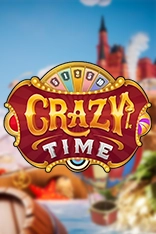
Understanding Gambling Addiction In The UK
User Review
( vote)Gambling has long been an element of UK society, with many high streets and city centres being home to betting shops and casinos. In 2016, though, the UK Gambling Commission estimated that as much as 0.7% of the UK’s population falls into the category of problem gamblers, showing that this form of entertainment can have a darker side. Let’s take a look at the issue of gambling addiction in the UK to give you a better understanding of it.
What Is Gambling Addiction?
While many view gambling addiction as little more than a lack of willpower, this issue is taken very seriously by those in the medical field and is considered an impulse-control disorder. As a progressive addiction, gambling problems can get worse and worse over time, leading to a wide range of negative repercussions.
The NHS states that “Being a compulsive gambler can harm your health and relationships, and leave you in serious debt.”, but they also offer a lot of support for those suffering from a gambling addiction. The questionnaire below can be used to determine whether or not you are a problem gambler.
The Problem Gambler Questionnaire:
- Do you bet more than you can afford to lose?
- Do the stakes need to increase for you to get the same positive reaction from a win?
- Do you try to win back losses?
- Have you taken loans, borrowed from friends, or sold possessions to afford to gamble?
- Do you worry that you might have a gambling problem?
- Does your gambling habit cause stress, anxiety, or other health issues?
- Has anyone else told you that you have a gambling problem?
- Has your gambling caused financial problems for you?
- Do you ever feel guilty about your gambling habits?
Score 0 for each time you answer “never”
Score 1 for each time you answer “sometimes”
Score 2 for each time you answer “most of the time”
Score 3 for each time you answer “almost always”
These are the same questions that a doctor will ask you when you talk to them about potential gambling addiction. They will collect a score based on your answers, and a result higher than 8 is a clear sign that you have a gambling problem. It’s possible to administer this test for yourself, though it’s worth being very careful to answer the questions honestly, avoiding the bias that you will feel when it comes to your own mental health.
Alongside this, there are a number of other symptoms that can show that someone has a gambling addiction. While this type of condition doesn’t have to relate to poor finances, those with a gambling addiction will often steal or sell items to make their habits affordable. Alongside this, they may also find it hard to talk about what they do online, actively looking for opportunities to be with their computer in private.
What Causes Gambling Addiction?
There are a number of potential causes for gambling addiction, though most people will find themselves in this position after a life-changing event. Retirement, stress, loneliness, other addictions, depression or anxiety, and other traumatic circumstances can all act as triggers for an addiction like this.
Unfortunately, though, people don’t often realise that they are addicted to gambling until it starts to cause problems in their lives. Gambling can hurt your finances and social life, causing stress that will only compound the issue and make it harder to break away from the games that you play. Secondary addictions are common amongst those with gambling problems.
People with addictive tendencies are much more likely to suffer from gambling problems that those who don’t have them. This makes it well worth assessing your own personality before you get involved with this sort of activity, with tools like bet limits being a good way to restrict the amount of gambling you can do each day.
Gambling Addiction Treatment
Treatments for gambling addictions have improved dramatically over the last few decades. As this sort of condition is taken more seriously, the support and advice that you can receive are always on the rise, and this makes it possible for even the biggest gamblers to clean up their act. The NHS has a range of suggestions that can help those who have a gambling problem.
Cognitive Behavioural Therapy
Research has shown that cognitive behavioural therapy can have similar results on those with gambling addictions to those with drug addictions. This treatment will enable you to talk to an expert who will be able to offer support and advice that will teach you how to overcome your gambling addiction. This option is great for those who want dedicated help as they get through this process.
Charities & Support Groups
Charities like the Gordon Moody Association offer residential courses that can help adults with their gambling problems. Much like CBT, this option will help you to learn how to put your addiction behind you, rather than simply forcing you to stop. Alongside this option, there are plenty of support groups, like GamCare, that can help those who are struggling to overcome a gambling problem.
The National Problem Gambling Clinic
The Nation Problem Gambling Clinic is operated by the NHS and available upon referral from your GP. This clinic is designed for those who are over 16 years old, but those who are younger than this can receive support from the National Centre for Gaming Disorders. This ensures that anyone in the UK can get help with a gambling addiction, no matter their age.
Gambling addictions can have a serious effect on a person’s life, placing strain on their finances, professional life, and their time at home. Of course, though, it’s never as simple as just turning off the computer. It’s always worth looking for support if you think that you have a gambling problem, and your doctor is almost always the best place to start.
Gambling Addiction FAQs
Is Gambling Addiction A Medical Condition?
Yes, gambling is a type of impulse-control disorder, placing it into the same category as kleptomania.
What Is The Best Way To Get Help With Gambling Addiction?
There are several ways to get help with gambling addiction, though it will usually be best to talk to your GP before you look for treatments on your own.
Do I Have To Pay For Gambling Addiction Treatment?
Certain treatments will be available through your insurance, national health service, and even charities, but some treatments will cost money.
How Do I Know If I’m Addicted To Gambling?
It can be hard to determine the signs of gambling addiction in yourself, but the NHS checklist found above can put you on the right track.
Why Don’t Gambling Addicts Just Stop?
While gambling addiction doesn’t involve any physical dependency, this sort of addiction can be just as hard to kick as being addicted to a substance. Recovering from gambling addiction can be a long and challenging process.
























